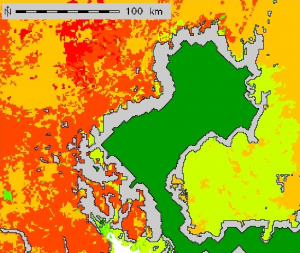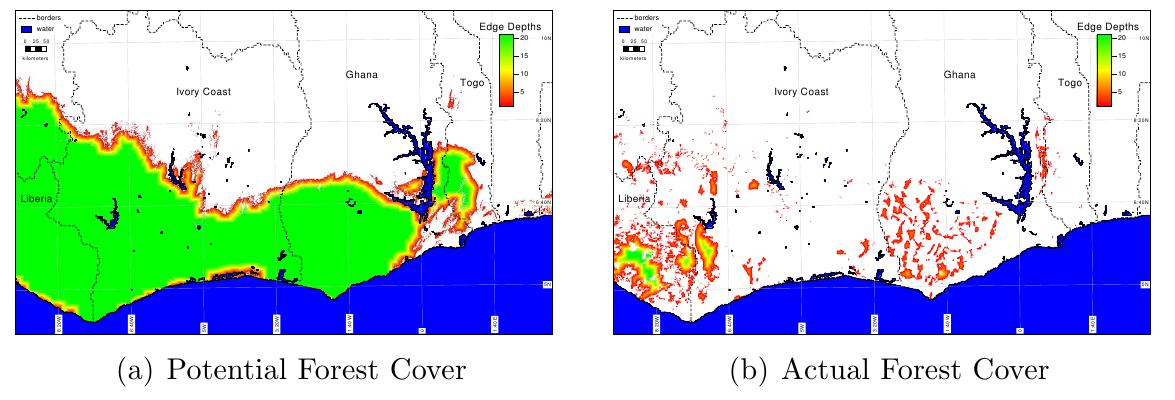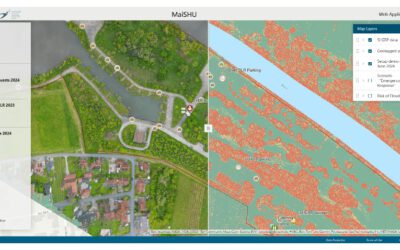 Our article in MEE got accepted “r.pi: a GRASS GIS package for semi-automatic spatial pattern analysis of remotely sensed land cover data” by Martin Wegmann, Benjamin Leutner, Markus Metz, Markus Neteler, Stefan Dech, Stefan and Duccio Rocchini. It outlines the capabilities of the r.pi package to analyze spatial patterns derived from remote sensing land cover data to inform about landscape conditions and changes. Such fragmentation measures are relevant for ecology or conservation as well as for remote sensing to produce value-added landcover maps that provide details on the spatial structure of the landscape.
Our article in MEE got accepted “r.pi: a GRASS GIS package for semi-automatic spatial pattern analysis of remotely sensed land cover data” by Martin Wegmann, Benjamin Leutner, Markus Metz, Markus Neteler, Stefan Dech, Stefan and Duccio Rocchini. It outlines the capabilities of the r.pi package to analyze spatial patterns derived from remote sensing land cover data to inform about landscape conditions and changes. Such fragmentation measures are relevant for ecology or conservation as well as for remote sensing to produce value-added landcover maps that provide details on the spatial structure of the landscape.
“Where Is Everybody?” — The EO4CAM Effect
If you walked through the corridors of our EORC offices this week, you might have had the same thought as many confused colleagues: “Where is everybody?” Yes, we know the meme. But before you assume a mysterious disappearance, spontaneous field campaign, or a secret...









